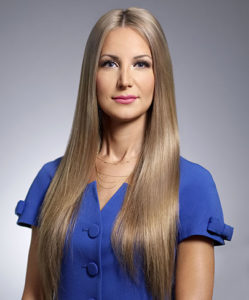The Ontario Court of Appeal recently upheld a gift made to beneficiaries under a will, despite the assets being owned by a corporation, and not the deceased himself. This is an important decision that will affect estate planning and will construction. In particular, testamentary gifts that may previously have failed may now be valid.
In Trezzi v. Trezzi, 2019 ONCA 978, the deceased was the sole shareholder of a company, Trezzi Construction Inc. (“Trezzi Construction”). In his will, the deceased gifted certain assets which were owned by Trezzi Construction to his son. The gifts were challenged by other family members on the basis that the assets being gifted were not owned by the deceased, but were owned by Trezzi Construction, which is a separate legal entity from the deceased shareholder.
The issue before the court was whether the deceased could gift these assets, despite being owned by Trezzi Construction. In deciding the issue, the application judge looked to the surrounding circumstances to determine the deceased’s intent. He also looked to the provisions of the will itself and ultimately concluded that the deceased could bequeath assets held by Trezzi Construction to his son. This decision was appealed by the other family members to the Ontario Court of Appeal.
The Court of Appeal upheld the application judge’s decision. Jamal J.A., writing on behalf of the Court, agreed that one must look at the deceased’s subjective intentions as reflected in the will. Justice Jamal held that the deceased intended to give all of the assets owned by Trezzi Construction to his family members upon death, such that the corporation would be left with nothing. As a result, the deceased effectively directed the winding-up of Trezzi Construction along with the distribution of all of its assets in accordance with the will, despite the fact there was no express provision that Trezzi construction be wound up.
Justice Jamal agreed with the application judge that there was authority for the wind-up and a distribution of all of the assets of Trezzi Construction in the provisions of the will as well as in the Ontario Business Corporations Act. The will contained a clause to allow the estate trustee to “sell, call in and convert into money any part of the estate not consisting of money”. Moreover, as a matter of general powers under corporate law, “shareholders of a corporation may, by special resolution, require the corporation to be wound up voluntarily”.[1] Since the deceased was the sole shareholder of Trezzi Corporation, he had the corporate authority to wind-up Trezzi Construction while he was alive. On his death, this authority devolved to the executors of his estate and, therefore, the executors could wind-up Trezzi Construction and dispose of the assets as intended.
Notably, the Court of Appeal indicated that it would have been preferable for the will to explicitly refer to the executor’s authority to deal with the assets of Trezzi Construction. The Court of Appeal included the Law Society of Ontario’s Annotated Will[2] as an example of how to further clarify such powers in a will and thus avoid this issue in the future.
In reaching its decision, the Court of Appeal refused to follow cases from Alberta and Saskatchewan determining that a sole shareholder can never effectively gift corporate assets because they are owned by the corporation. Instead, the testator’s subjective intentions in light of the surrounding circumstances were the determining factor.
Although the impact of this case is likely limited to testators who are sole shareholders, it is important to take this case as a caution of “what not to do”. The validation of the gift in Trezzi v. Trezzi ought not encourage poor drafting of wills or reliance on the courts to save invalid gifts. Instead, it should be a reminder of the importance of careful and well-thought out drafting.
[1] Business Corporations Act, R.S.O. 1990, c. B.16, at s. 93(1).
[2] Law Society of Ontario, The Annotated Will 2019, (January 16, 2019), at pp. 1-79.
ABOUT THE AUTHORS
Brian Radnoff is a Partner in Dickinson Wright’s Toronto office. He can be reached at 416-777-4046 or BRadnoff@dickinsonwright.com.
Sahar Cadili is a Partner in Dickinson Wright’s Toronto office. She can be reached at 416-646-6875 or SCadili@dickinsonwright.com.
Tiziana Romagnuolo is an Articling Student in Dickinson Wright’s Toronto office.


